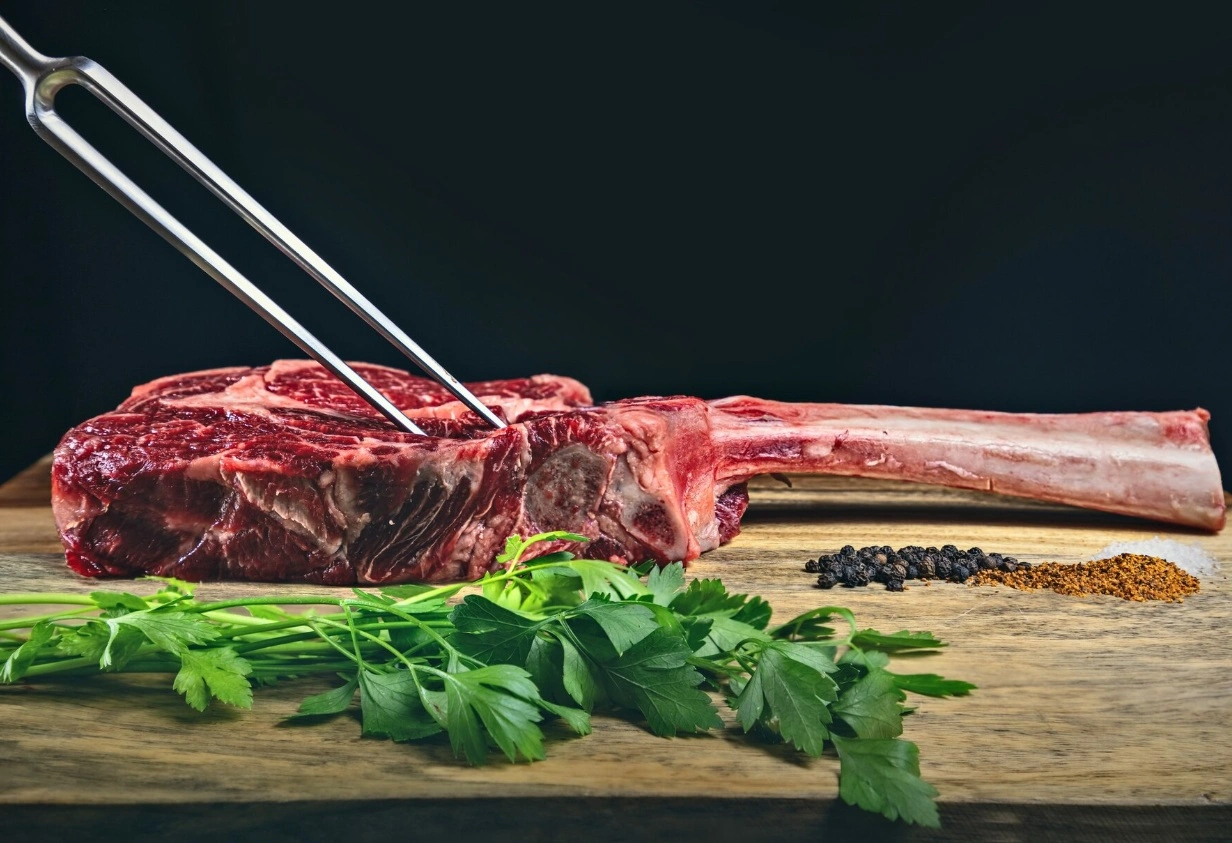
While two of the most popular low-carb, animal-based diets, Keto and Carnivore, reduce carbohydrates and shift the body into fat-burning mode, their approaches, food rules, and health impacts differ significantly. Keto focuses on shifting your metabolism to burn fat via ketosis, using low-carb plant and animal foods. Yet Carnivore eliminates all plant foods and relies on animal-based products to bring different health benefits. While both can be effective, they have different goals and suit different people. Whether you are aiming for weight loss, better energy levels, or chronic disease management, you should learn all about Keto vs Carnivore and find the diet that better helps you reach your goals.
Keto and Carnivore are two phases of the Primal Diet, which aims to provide root-cause healing by targeting the main causes of chronic illness, including inflammation, insulin resistance, and hormonal imbalances.
To learn which of these phases can be your ultimate goal, you need to learn about both diets. So, let’s compare Keto vs Carnivore and find out their benefits, side effects, and differences.
At first glance, the Keto and Carnivore diets might seem similar: both are low-carb, high-fat dietary approaches that focus on protein and fat for energy instead of carbohydrates.
However, they have significantly different philosophies, food choices, and long-term effects.
The Keto Diet allows a wide range of low-carb vegetables, nuts, seeds, dairy, and even some fruits, focusing on macronutrient ratios to induce and maintain ketosis.
In contrast, the Carnivore Diet allows only animal-based foods, eliminating all plant-based foods and carbohydrates.
If you're trying to decide which one is right for you, or just want to understand the differences clearly, let’s take a look at the following table that shows the differences between Carnivore vs Keto diets.
Learn More: 30-Day Carnivore Diet Meal Plan PDF (Downloadable File)
Choosing between Keto and Carnivore is a matter of your metabolic flexibility. It means how much your body allows you to decrease carbohydrates.
To understand this better, we can start comparing Keto vs Carnivore by focusing on their key differences, including carbohydrates, fiber, foods, macros, sustainability, and risk of anti-nutrients.
You can also compare Carnivore vs Keto regarding their main health goals and philosophies behind limiting carbohydrates and focusing on fat and protein intake.
Learn More: What Is a Ketovore Diet? Meal Plan, Food List
The Keto Diet is flexible, includes a variety of foods, and is easier to adapt to social settings. It is better for people looking for sustained fat loss, better energy, and blood sugar control.
The Carnivore Diet, while more restrictive, can be better for people looking for simplicity and relief from chronic symptoms.
Now, let’s get into the details and focus on each diet’s features and goals, so we can compare Keto vs Carnivore and help you find out which one is more suitable.
Learn More: Carnivore Diet Before and After Photos: Carnivore Diet Results
The Ketogenic (Keto) Diet is a high-fat, moderate-protein, and low-carbohydrate eating plan that aims to shift your metabolism into a state called ketosis, where the body burns fat instead of glucose to provide energy.
Generally, on a Keto Diet, you should source your daily calories according to the following percentages:
You can provide these macronutrients from different foods allowed on a Keto Diet, including:
However, you should avoid or restrict grains, sugars, starchy vegetables, most fruits, and processed foods.
By establishing these rules and permitting these foods, the Keto Diet aims to help you induce ketosis, facilitating weight loss, improved insulin sensitivity, enhanced mental clarity, and sustained energy. Learn all about the Keto Diet.
Learn More: 10 Approved Ways to Boost Carnivore Diet Weight Loss Results

The Carnivore Diet is an almost zero-carb, animal-based elimination diet that excludes unnecessary foods and focuses on maintaining calories from nutritious animal-based sources, such as meat, fish, eggs, and limited dairy.
On a Carnivore Diet, your daily calories should come from two main sources: fat and protein. You can source fat and protein from animal-based products, including:
However, you must avoid all plant-based foods, such as vegetables, fruits, nuts, seeds, and grains.
By avoiding anti-nutrients coming from plant-based foods and focusing on a minimal way of eating and nutritious foods, you can reach the following health benefits on a Carnivore Diet:
Learn about the Carnivore Diet and its long-term health effects.
Comparing Carnivore vs Keto, we so far know that they both
Both diets are low-carb and aim to reduce insulin spikes and promote fat burning. Both encourage ketosis, though Carnivore achieves it through zero-carb intake, while Keto allows minimal carbohydrates.
However, their health benefits are more than this. Let’s see how each of these diets can improve our health status.
Learn More: David Goggins Diet: Food List and Meal Plan
First, let’s take a look at the table below that compares the main benefits of the Keto vs Carnivore Diet. Then, we get into the details of each benefit and check the underlying scientific research.
The Ketogenic Diet can help reduce body fat, especially visceral fat, by providing a situation for the body to burn fat instead of carbohydrates, which is called the ketosis state [1] [2].
It can also help retain lean muscle due to moderate protein intake. Studies suggest that low-carb, high-fat diets can improve fat oxidation and reduce appetite naturally, helping smooth weight loss [3].
Keto is especially effective for those with type 2 diabetes or insulin resistance. Limiting carbohydrate consumption can significantly lower blood sugar and insulin levels, even reducing the need for medications [4].
Different research studies support improved HbA1c and insulin sensitivity in individuals following the Ketogenic Diet [5].
Learn More: The 60-Hour Fast Benefits and Results: Is It Safe?
The Keto Diet limits carbohydrates, so the body needs an alternative energy source that happens to be fat (ketones) stored in the body.
Ketones provide a stable source of energy for the brain, reducing brain fog and enhancing mental performance. Some studies show positive effects of low-carb diets on Alzheimer’s and cognitive function [6] [7].
Originally developed for epilepsy treatment, Keto remains a well-researched intervention for neurological disorders. Keto helps reduce seizure frequency, especially in drug-resistant epilepsy cases [8].
Learn More: Not Losing Weight on Carnivore Diet: 30 Reasons & Solutions

By removing plant-based foods that contain oxalates, lectins, and phytates, the Carnivore Diet can reduce inflammation and autoimmunity.
Personal reports and small studies suggest symptom relief in conditions like arthritis and eczema [9] [10].
Eliminating fiber and plant material can lead to relief from bloating, IBS, GERD, and other GI issues. Some studies also confirm that plant fibers can aggravate an already inflamed gut [11].
So, removing fiber can boost gastrointestinal health in individuals dealing with various gut problems.
Learn More: Carnivore Diet Chicken Casserole for Lunch and Dinner
Many Carnivore followers report reduced anxiety and depression. Some attribute this to the removal of fluctuating blood sugar levels and plant toxins [12].
While evidence is still limited, it is being increasingly studied in mental health circles, and general findings are mainly positive [13].
Animal foods like liver, eggs, and fatty meat are rich sources of bioavailable nutrients like B12, iron, zinc, and retinol. The Carnivore Diet is naturally satisfying, reducing the need for snacking or tracking [14].
Individuals with conditions like psoriasis, lupus, or rheumatoid arthritis report significant improvement after going Carnivore. Studies show positive effects of this zero-carb diet on autoimmune patients [15].
The following table summarizes the main differences between Carnivore and Keto diets.
Learn More: 15+ Quick & Easy Carnivore Meals with Carnivore Diet Recipes
Despite the above positive health impacts, Keto and Carnivore may involve health concerns for individuals with underlying health conditions. So, it is wise to learn about them before beginning the diet.
The table below shows the main possible side effects of the Carnivore Diet vs Keto. Then, we will go through the details of each potential side effect.
Learn More: Carnivore Diet Side Effects and How to Avoid Them
During the first 1–2 weeks, many experience Keto flu, which can cause symptoms such as fatigue, brain fog, nausea, and cramps [16].
This is due to water loss and electrolyte imbalances. Drinking enough water and supplementing sodium, potassium, and magnesium, or just table salt, helps reduce and manage symptoms [17].
Learn More: Speed Keto Diet: What Is It and How Does It Work?
While Keto includes a range of foods, a poorly planned approach can cause deficiencies in fiber, magnesium, and certain B vitamins [18] [19].
It is important to consume different kinds of whole foods, such as leafy greens, avocado, nuts, etc.
Keto can raise LDL cholesterol in some individuals, although it often improves HDL and lowers triglycerides. You can check your blood lipid levels regularly, especially if you have a family history of heart disease [20] [21].
Learn More: How to Lower Cholesterol on Carnivore Diet? 10 Approved Ways

Some argue that removing dietary fiber completely may alter gut microbiota diversity. While some feel better, long-term effects on gut health remain unclear [22].
However, there are a lot of misconceptions about fiber and its miraculous effects! Learn about fiber myths in this article about Carnivore Diet constipation.
While some believe that without plant foods, getting enough vitamin C, K2, magnesium, and folate may be difficult, organ meats can help by providing a wide range of nutrients [23].
Here is all you need to know about how to get vitamin C on a Carnivore Diet.
There is limited scientific research on the long-term effects of the Carnivore Diet, and more research needs to be done.
Although its effects on kidney function, cardiovascular health, and the microbiome are not yet fully understood, you can learn more about the short-term and long-term Carnivore Diet side effects.
The table below summarizes the risks involved with the Carnivore and Keto diets.
The following table compares Keto vs Carnivore regarding their effect on key health markers, including triglycerides, HDL, LDL, blood sugar, and CRP.
It is wise to track your blood markers if you are trying either diet for the long term. While many people experience improvement, results can vary based on genetics and underlying conditions.
So, based on these benefits and side effects of the Carnivore Diet vs Keto, which of them can be more effective for different goals, such as weight loss, mental function, autoimmune diseases, digestive issues, etc.?
Learn More: 7-Day Free Carnivore Diet Meal Plan for Women + Variations
The following table quickly compares Keto vs Carnivore regarding different goals that individuals who follow these diets may have, and shows which diet performs better.
Yes. Many of the individuals following the Primal Diet start with the Low-Carb Diet, where they start lowering carbohydrate intake. Then, limit carbohydrates further and go Keto, transition to Carnivore, and even settle on a Ketovore Diet.
Ketovore or Keto Carnivore Diet is a hybrid eating plan that includes meat as the base, but allows limited low-carb plants.
The most important point is the gradual transition to see how your body reacts and which eating habit best works for you based on your metabolic flexibility, health status, needs, and goals.
Learn More: The Carnivore Diet Meal Plan PDF to Lose Weight, Heal & More
Comparing Keto vs Carnivore tells us that both diets can be helpful, but choosing one as better depends on your personal health markers. It is wise to consult a healthcare professional before starting a new diet and have your blood markers tested.
But generally speaking, if you are looking for variety and flexibility, you can go for the Keto Diet. But if you want to heal your gut, reduce inflammation, or simplify eating, try the Carnivore Diet.
Learn More: The Gary Brecka Diet: How to Follow The 30/30/30 Method?
Here are the answers to the most frequently asked questions about Keto vs Carnivore.
Yes. The Carnivore Diet is essentially zero-carb, which pushes your body into ketosis just like the Keto Diet.
Carnivore is more effective for inflammation in people with food sensitivities, but Keto also lowers inflammation by reducing sugar and refined carbohydrates.
You don’t have to take supplements, but you can take them if your body needs them after consulting a doctor. Keto may lack magnesium and potassium. Carnivore may be low in vitamin C, calcium, and fiber.
Learn More: White Meat vs. Dark Meat: Which One Is Better for You?
Keto is generally easier to stick with long-term due to variety and flexibility. Carnivore may be hard socially, but it is worth the health benefits.
Yes, high-protein Keto and Carnivore diets both support muscle gain.
Yes. Both can cause temporary side effects, especially during the adaptation phase.
Yes, many people start Keto and then move to Carnivore for simplicity or more health improvements.
Learn More: The BBBE Diet Benefits, Side Effects, Meal Plan, and Foods